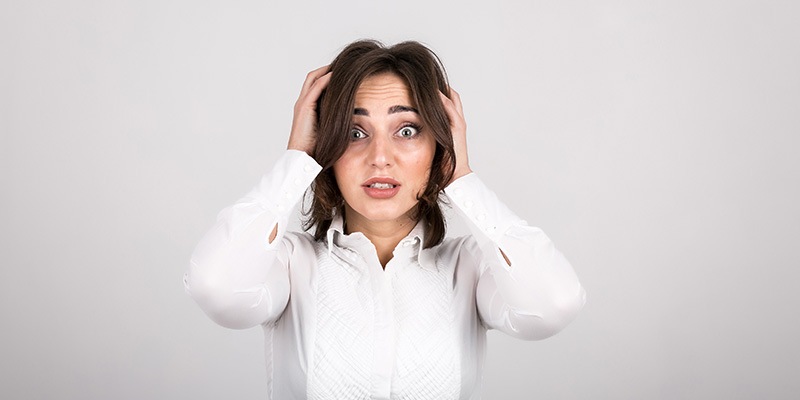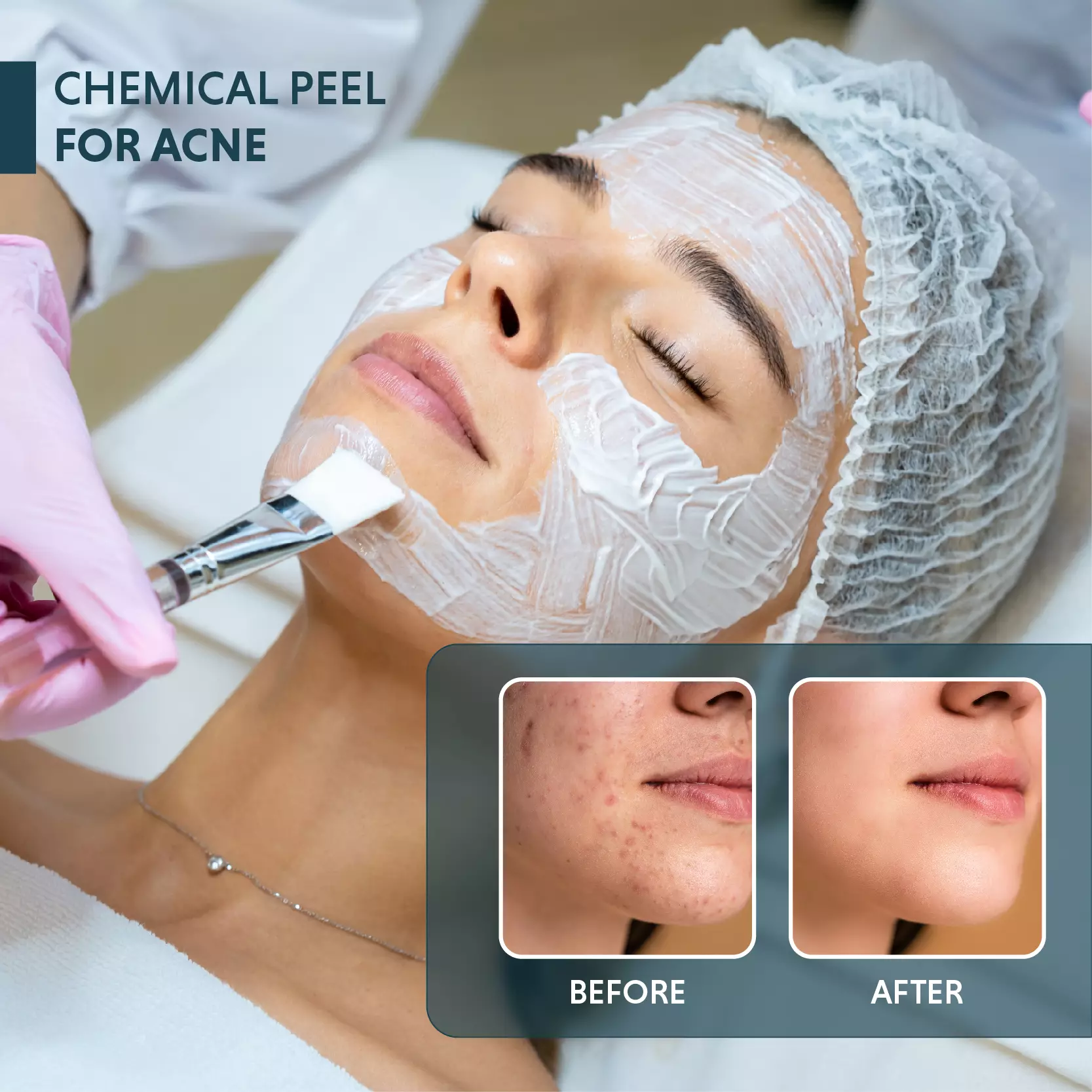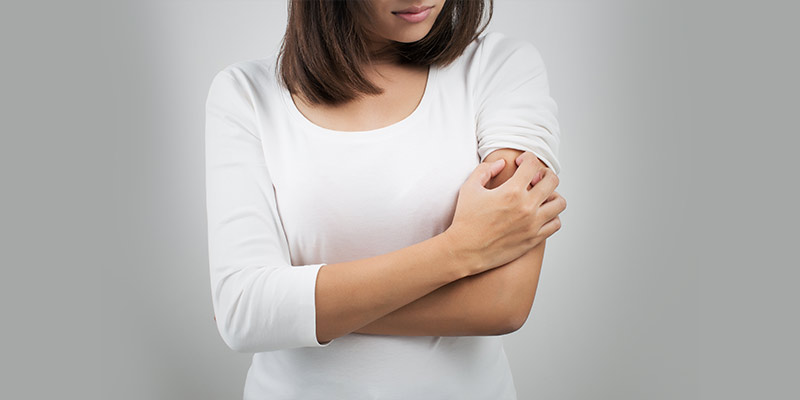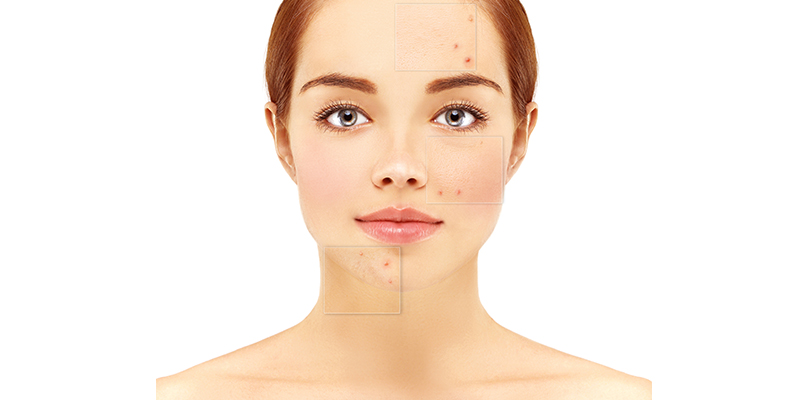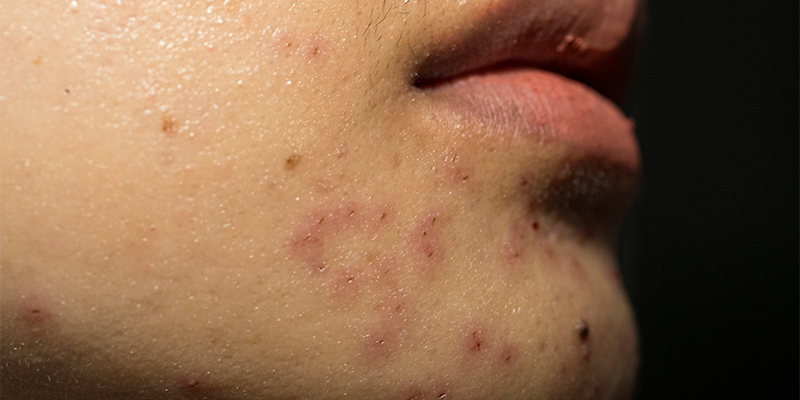In This Article
Period Acne: Causes, Treatments, Home Remedies & Prevention
We all experience acne some day or the other, but it becomes all the more frustrating when you experience breakouts during your periods. As if dealing with periods wasn’t enough, now you have to deal with period pimples as well. This article will explore the connection between pimples and periods and how to prevent them.
In This Article
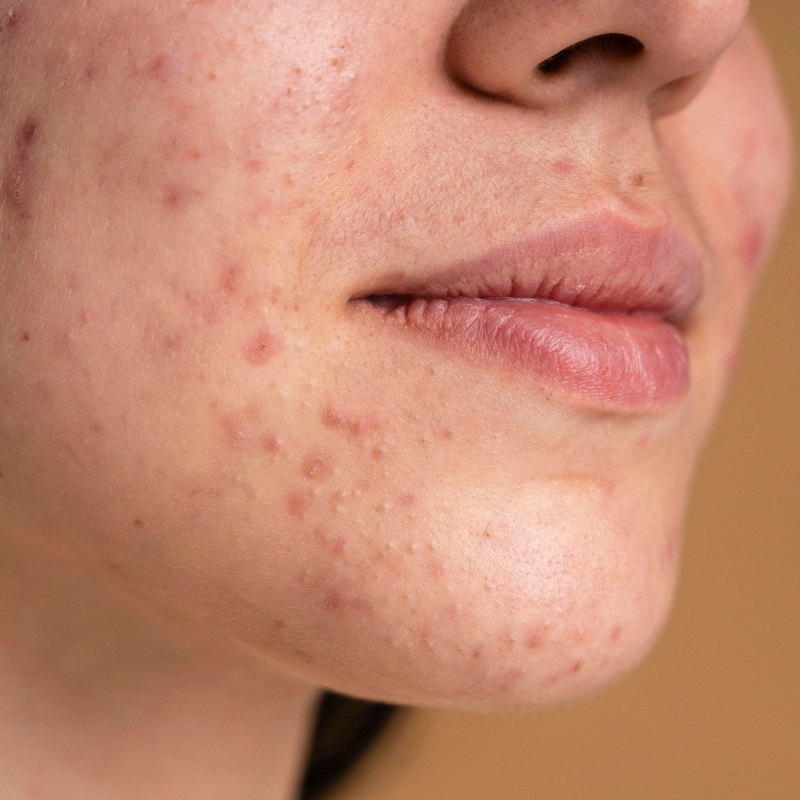
What Causes Period Acne?
The primary reason for developing period acne is the hormonal fluctuations caused during the menstrual cycle. The levels of progesterone, estrogen and testosterone begin to change a week before the period. Two days before the start of the period, progesterone and estrogen levels decrease while testosterone rises. This increase leads to increased oil production by the sebaceous glands, resulting in clogged pores and period pimples. [1]
Symptoms Of Period Acne
- Type of acne: Period pimples typically look pus-filled and are painful to the touch. They usually fall under three categories – papules, pustules and cysts.
- Location of acne: Breakouts during the period usually occur in places with plenty of sebaceous glands, such as the chin, neck and jawline. They are more likely to be worse around the chin area.
- Timing: Breakouts before the period usually occur a few days to one week before or after the period. [2]
How Long Does Menstrual Acne Last?
Menstrual acne usually flares up during the week of your menstrual cycle due to hormonal fluctuations. It gets better as soon as the menstrual cycle ends. If you have clear skin, you will notice a breakout or two appearing during the period. [3]
How To Prevent Period Breakouts?
You can prevent pimples during periods from flaring up or getting worse by following these helpful tips –
- Have a balanced diet: You can manage breakouts during the period by paying attention to the diet. Try to eat foods with a low Glycemic Index (GI), as they help regulate blood sugar and prevent sudden spikes. Avoid foods with high GI, such as white bread, processed foods, and foods rich in sugars. They may lead to inflammation and period pimples. [4]
- Use non-comedogenic products: Always use non-comedogenic skincare and makeup products that do not clog the pores. This prevents the formation of pimples during periods.
- Take adequate sleep: Lack of proper sleep is primarily due to fluctuations in stress hormone levels known as cortisol. This will likely worsen acne.
- Manage stress: Try to manage stress and reduce cortisol levels with techniques such as deep breathing, meditation and Yoga.
- Avoid picking pimples: If you have mild breakouts, try not to touch them with bare hands or pick on them. This may worsen them and lead to marks.
- Try oral contraceptives: If you struggle with irregular periods, then birth control pills or oral contraceptives may help to treat period acne due to hormonal issues.
- Consult a dermatologist: Some people may have PCOS that may be causing period pimples. It is best to consult an experienced dermatologist who may help identify the underlying issue and then prescribe medications accordingly.
When To Visit A Dermatologist?
If you are experiencing pimples during your periods more than two times in a row, it is best to see a dermatologist. If it is accompanied by irregular periods, painful cramps, excessive body hair, unexplained weight gain or loss, and hair loss, then visit a dermatologist immediately.
How To Get Rid Of Period Pimples?
Period pimples rarely get resolved on their own. If you want to get rid of these pesky breakouts, it is best to seek a dermatologist and try one or more of the following treatment options –
- Topical Treatments: The dermatologist usually suggests topical treatment as a spot treatment cream or gel to accelerate healing. Benzoyl peroxide is a common ingredient in such creams and helps kill acne-causing bacteria and unclog pores. Make sure to use in the prescribed quantity if you have sensitive skin.
- Oral Medications: In addition to topical treatments, the dermatologist may recommend oral medications such as antibiotics to treat mild to moderate acne. They may also prescribe birth control pills if the acne is primarily due to hormonal fluctuations.
- Chemical Peel: Chemical peels use natural extracts to peel off the layer of dead skin cells from the top layer of the skin and unclog dirty pores. Salicylic acid peel and lactic acid peel are used to slough off dead skin cells and clear acne as well as marks.
- Comedone extraction: In case of severe acne, such as cysts and nodules, the dermatologist may suggest extraction of these comedones using a manual handheld device. This helps remove the junk and clean out the pores for faster healing. [5]
Home Remedies To Get Rid Of Period Acne
There are a couple of useful home remedies that can help prevent pimples or make them more manageable. Use these ingredients to get rid of pimples during periods –
- Tea Tree Oil: Tea tree oil is famous for its anti-bacterial properties. Applying it as a spot treatment on the pimple helps to kill the bacteria and keep the pores clean.
- Aloe Vera: Aloe vera is highly soothing and helps calm the inflammation and redness caused by period acne. You can apply it directly or mix it to make a face mask to soothe the pimples.
- Honey and Cinnamon Mask: Honey is a potent anti-bacterial, and cinnamon has anti-inflammatory properties. Both are full of antioxidants, and you can use them together as a mask to kill acne-causing bacteria and calm inflammation.
- Apple Cider Vinegar: Apple cider vinegar contains anti-inflammatory and exfoliating properties. Applying it on the pimples helps kill acne-causing bacteria and exfoliates the skin while reducing inflammation and maintaining the skin’s pH balance. Make sure to dilute it with water before applying directly to the skin.
- Green Tea: Green tea is highly effective in treating pimples when used as a mask due to its high antioxidant and polyphenol levels. It helps maintain sebum levels and alleviate period acne. You can use it as a mask with honey.
Takeaway
Pimples during period can happen to anyone. However, if it occurs consistently, it is best to consult a dermatologist and seek appropriate treatment. The doctor will help identify the underlying issue behind it and recommend the most suitable treatment to get rid of it. Make sure to stick to preventative tips to help manage period acne and prevent future breakouts.
Frequently Asked Questions On Period Acne
Normal acne can occur anytime, but period acne usually affects someone during their menstrual cycle and may get aggravated during periods.
Having a missed period may indicate PCOS and often cause breakouts due to fluctuations in hormones.
The late luteal phase of the menstrual cycle is considered the worst phase to experience acne flareups.
Pimples before period usually occur 7 to 10 days before the beginning of the menstrual cycle as our body goes through hormonal shifts.
While drinking water may not help directly, it does help with the better elimination of toxins from the body and supports immune function.
Period pimples usually pop up in the areas with the most sebaceous glands, such as the lower third of the face – chin and jawline.
Using a spot treatment may help vanish the period acne overnight or at least help ease the inflammation.




